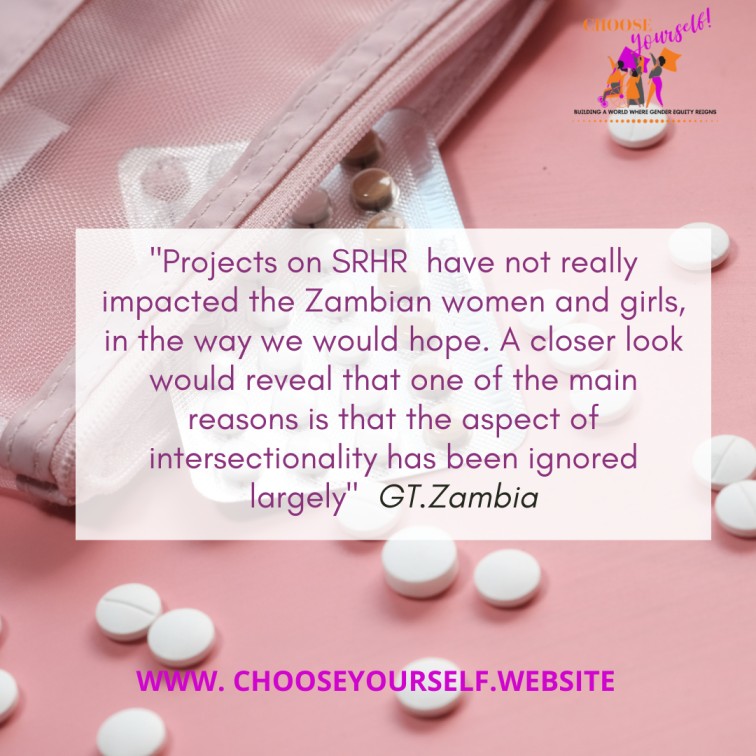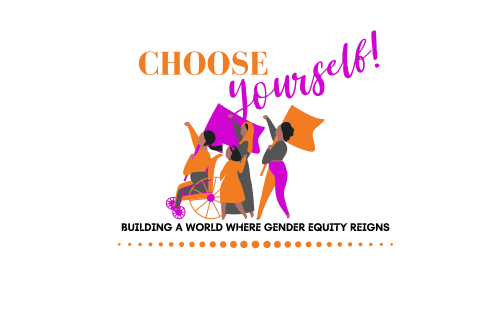The topic of SRHR in the Zambian community is one that has been used as a political tool for a long time. Ministries and a lot of CSOs have over the last few years been launching projects on SRHR that have not really impacted the Zambian women and girls, in the way we would hope, and a closer look would reveal that one of the main reasons is because the aspect of intersectionality has been ignored largely. This is what our first GT for 2022 focused on.
Opening it up and holding it online allowed for some girls, women, and non-binary people that do not feel safe usually to attend such meetings to add their voice on this topic.
A lot of issues raised were how the approach towards achieving more access to SRHR does not have an intersectional approach, which makes most people shun away from these services. Women from the LGBTQI+ community for example do not feel safe seeking information from health care centers or even CSOs because they can see that these programs are not really made with them in mind. A discussion around how most facilities are not even made to accommodate differently-abled women brought to light how many women are being left behind in advocating for better SRHR.
BETTER ADVOCACY
The common suggestion from our discussion was how a lot of the people working around SRHR could unlearn language. It’s important that we use inclusive language and also stop using derogatory terms.
Centering the people that our projects are targeted at is also key in ensuring we hear from them and provide what they want and not what we believe they should have.
Ultimately, we all agreed, collaborating as Feminist organizations will go a long way in ensuring our voice is strong and inclusive.
Girl Talk Zambia has picked inclusivity as a key component of all the Talks we hold this year and after the first one, we are excited and looking forward to the rest of the year!
Author: Tendai Miti, GT Coordinator Zambia.


